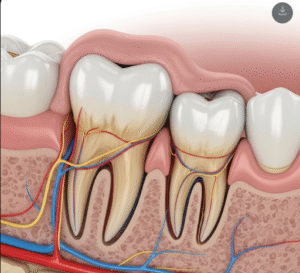Overview
Iodine deficiency is a significant global public health issue characterized by insufficient iodine intake, which is essential for normal thyroid function and overall health. Iodine is a vital trace element required for the synthesis of thyroid hormones, which regulate metabolism, growth, and development. In Korea, iodine deficiency disorders are less common due to adequate iodine intake through diet, especially from seafood and iodized salt; however, isolated cases and at-risk populations still require attention and management.
What Is Iodine Deficiency?
Iodine deficiency occurs when the body does not receive enough iodine from dietary sources, leading to decreased production of thyroid hormones. This can cause a spectrum of disorders collectively known as iodine deficiency disorders (IDD), including goiter (thyroid enlargement), hypothyroidism, developmental delays, and in severe cases, cretinism in infants. The deficiency is particularly detrimental during pregnancy and early childhood, affecting brain development and physical growth.
Symptoms
Symptoms vary depending on severity and age but commonly include:
- Goiter (visible swelling in the neck)
- Fatigue and weakness
- Weight gain despite poor appetite
- Cold intolerance
- Dry skin and hair thinning
- Constipation
- Depression or cognitive slowing
- In pregnant women, increased risk of miscarriage, stillbirth, and developmental issues in the fetus
- In infants and children, delayed growth and mental retardation in severe cases
Causes
- Inadequate dietary iodine intake due to low iodine content in soil and water
- Poor consumption of iodine-rich foods like seafood, dairy, and iodized salt
- Dietary restrictions or certain goitrogenic foods (e.g., cassava, cabbage) that interfere with iodine uptake
- Increased iodine requirements during pregnancy, lactation, or periods of rapid growth
- Environmental factors reducing iodine availability
Risk Factors
- Living in regions with iodine-deficient soil and limited access to iodized salt
- Pregnant and breastfeeding women due to increased iodine needs
- Infants and young children with higher vulnerability to deficiency effects
- Vegetarian or vegan diets lacking iodine-rich animal products
- Socioeconomic factors limiting access to fortified foods
Complications
- Development of goiter due to thyroid gland enlargement
- Hypothyroidism causing metabolic slowdown and related health issues
- Impaired cognitive development and lower IQ in children
- Increased rates of miscarriage, stillbirth, and congenital abnormalities
- Cretinism, a severe form of mental and physical disability caused by untreated iodine deficiency during pregnancy
Prevention
- Universal salt iodization programs to ensure adequate iodine intake in the population
- Public health education on the importance of iodine-rich diets
- Monitoring iodine levels in at-risk groups such as pregnant women and children
- Supplementation with iodine tablets in iodine-deficient regions or populations
- Encouraging consumption of iodine-rich foods like seaweed, fish, dairy products, and eggs
Treatment Options in Korea
In Korea, iodine deficiency is relatively rare due to widespread access to iodine-rich foods and public health measures. However, when identified, treatment includes:
- Dietary Management:
- Increasing intake of iodine-rich foods such as seaweed (a staple in Korean cuisine), fish, and dairy
- Using iodized salt as a daily dietary staple
- Iodine Supplementation:
- Administering iodine tablets or multivitamins containing iodine for pregnant women or those with diagnosed deficiency
- Close monitoring of thyroid function during treatment to avoid excess iodine intake
- Medical Care:
- Evaluation and management of thyroid enlargement or hypothyroidism
- Endocrinology consultations for complex cases
Korea’s healthcare system emphasizes prevention through nutrition education and early detection to maintain adequate iodine status and prevent deficiency-related disorders.













